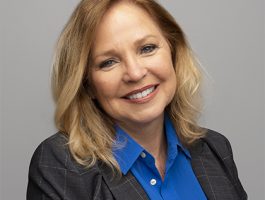
Heart and Spine for Children
What do we want the future of the Church to look like? Valerie Bell, Matt Markins, and Mike Handler call on the Church to raise up children who love Jesus for the rest of their lives.
Show Notes
About the Host
About the Guest
-
- Find resources from this podcast at https://shop.familylife.com/Products.aspx?categoryid=130.
- Download FamilyLife's new app! https://www.familylife.com/app/
- Check out all that's available on the FamilyLife Podcast Network. https://www.familylife.com/familylife-podcast-network/
-
Dave and Ann Wilson
Dave and Ann Wilson are hosts of FamilyLife Today®, FamilyLife’s nationally-syndicated radio program. Dave and Ann have been married for more than 38 years and have spent the last 33 teaching and mentoring couples and parents across the country. They have been featured speakers at FamilyLife’s Weekend to Remember® marriage getaway since 1993 and have also hosted their own marriage conferences across the country. Cofounders of Kensington Church—a national, multicampus church that hosts more than 14,000 visitors every weekend—the Wilsons are the creative force behind DVD teaching series Rock Your Marriage and The Survival Guide To Parenting, as well as authors of the recently released book Vertical Marriage (Zondervan, 2019). Dave is a graduate of the International School of Theology, where he received a Master of Divinity degree. A Ball State University Hall of Fame quarterback, Dave served the Detroit Lions as chaplain for 33 years. Ann attended the University of Kentucky. She has been active alongside Dave in ministry as a speaker, writer, small-group leader, and mentor to countless wives of professional athletes. The Wilsons live in the Detroit area. They have three grown sons, CJ, Austin, and Cody, three daughters-in-law, and a growing number of grandchildren.
-

Matt Markins
Matt Markins is President and Chief Strategy Officer of Awana, a global leader in child discipleship. He is also a public speaker and coauthor of three books, including RESILIENT: Child Discipleship and the Fearless Future of the Church. He and his wife, Katie, have volunteered in children’s ministry for more than 20 years, and they have two sons.
Mike Handler
Michael Handler is the Chief Communications Officer at Awana. He has 18 years of experience in business and ministry. Through engaging storytelling and collaboration, he helps leaders understand the culture and creatively solve problems. Michael and his wife, Erin, have four children. They love family dinners and cheering on the Cubs and Bears.
Valerie Bell
Valerie Bell is an award-winning author, global children’s activist, and sought-after speaker. In 2012 Valerie joined Awana®, bringing her leadership, calling, and passion to join the efforts of Awana in reaching children and youth all around the world. In her most recent book, Resilient: Child Discipleship and the Fearless Future of the Church Valerie challenges church and ministry leaders to disciple today’s children and youth as they will become the leaders of tomorrow’s churches, comm...more
What do we want the future of the Church to look like? Valerie Bell, Matt Markins, and Mike Handler call on the Church to raise up children who love Jesus for the rest of their lives.
Heart and Spine for Children
Ann: Okay; think back to when our first son, CJ, was born; remember that?
Dave: Thirty-five years ago.
Ann: Yes; what do you think our goal was? [Laughter] Do you think we had any goals?
Dave: I’m laughing, because we had no goal. We hadn’t even really thought about it.
Ann: Well, no; we did think—
Dave: You did.
Ann: —before he was born, we were like, “We’re going to raise these guys to love Jesus—our kids!” I mean, we had that in mind.
Dave: Oh, definitely.
Ann: Like we wanted to raise kids that would impact the world for Jesus.
Dave: That was our goal.
Ann: But then, we had no idea how to get there. [Laughter]
Dave: Yes.
Ann: Do you think that’s true?
Dave: I think we were like most typical parents.
Ann: Yes.
Dave: We had a dream. We heard what the dream should be, maybe at church. We had no concept of how hard it would be and what it would look like.
Ann: And how you get just lost in the dailies/the demands of life.
Dave: And I would say every parent can relate.
Ann: Yes.
Welcome to FamilyLife Today, where we want to help you pursue the relationships that matter most. I’m Ann Wilson.
Dave: And I’m Dave Wilson, and you can find us at FamilyLifeToday.com or on our FamilyLife® app.
Ann: This is FamilyLife Today.
Dave: In fact, when we wrote No Perfect Parents, that was the purpose; it was like: “How can we help parents decide what their bullseye”—we called it—“what they’re trying to raise?” Most parents, including us when we started, really didn’t know what that looked like.
Ann: And I love FamilyLife’s—the Art of Parenting® [video series]—because it had that same concept in mind: “How can we raise these kids to follow Jesus?”
Dave: Yes; we wanted resilient kids—
Ann: That’s what we wanted!
Dave: —kids whose faith was resilient for their entire lifetime.
You know, we’ve got a whole group of writers in the studio today, who wrote a book called Resilient, which is all about/let me read you the subtitle: Child Discipleship and the Fearless Future of the Church. As I read this, you know, it was about the church; but it was also about the family. It’s the partnership there.
Ann: Yes.
Dave: And I’m so excited for today—because every parent that I know, who wants to raise children of the faith—have the same dilemma: “I have this goal. I don’t know how to get there, and I’m not even sure how to describe what the goal is.”
We’ve got three authors here to help us do this; right?
Ann: Yes. Valerie Bell, Matt Markins, and Mike Handler. You guys, welcome, again, to FamilyLife Today.
Mike: It’s so good to be here.
Valerie: Thank you!
Matt: Yes.
Dave: And some of our listeners know this name/probably, a lot do: Awana is what Valerie’s the CEO of. You all work with Awana. Chief Strategy, Matt, over here; Mike is Chief Communications; right?
Mike: Yes.
Dave: —with the radio voice.
Mike: That’s it.
Dave: I mean, you’re an amazing team for Awana but, also, an amazing team as authors. As we read your book, it was compelling to help families—we just talked about parents—but also, the church understand what we’re trying to produce.
Mike: Yes.
Dave: And this is elementary. Every church should be able to answer this question; every family should; but a lot of us can’t: “What is it we are trying to raise as parents?” and “As children’s ministers in the church, what should be the goal?”
Valerie: We should have our eye on the future church. We looked at 2050; and we said, “These kids are going to be adults in 2050. What are we wanting that church to look like?” If you want a strong family/if you want strong children, you should be very invested in building a strong church; because out of that church, children grow in the soil of that rich faith that they find in church.
You know, to have this sense of future—“What is the future goal that we’re trying to build here?”—you know, we’ve said we want to raise kids, who will love Jesus for the rest of their lives. There’s that passionate identity with Christ—and not just with Christ—but with His church/with God’s people. There is this sense that our children have the capacity to, even in this strong culture, build a primary identity, or primary allegiance, with God, and with Jesus, and with the Bible, and with the church.
All of these things fall under this category of discipleship. That’s the broader heading for all of those things that I’ve been describing. We want to raise disciples.
Mike: I love how you started that out; because everyone listening is like: “Of course, we want to make disciples! We want our children to love Jesus for the rest of their lives. But something has changed!” Our listeners are probably thinking, “The culture around us has changed rapidly.”
We talk about this story in the book about a public official, who was going before the Senate to be confirmed for public office. He’s being grilled because of his orthodox, evangelical, Bible-believing beliefs. What is this telling us? It’s telling us: “Things that were once celebrated about the Christian faith, in our culture, are becoming, increasingly, no longer celebrated.” Christian thinking may, in the future, be increasingly marginalized. We have to ask ourselves: “Are we giving kids lesser things that will not travel with them into their adult lives?” “What can we do to disciple resilient young people, who are going to engage the culture and lead the future of the church?”
Valerie: Let’s speak into the family for a second, too,—
Dave: Yes; do that.
Valerie: —because the Christian family has changed. We know, from our own record-keeping, that Christian families—who say they are church-attenders—their kids, from the church rolls, actually, are only going to be there 1.7 times on average per month.
Ann: Well, Valerie, I thought it was interesting, as you were talking about how important the church is—I think, especially, with COVID; because we’ve all been in our own homes, worshiping maybe online or just—we’re thinking, “I can make disciples in my own home!”
Valerie: I’m glad you brought that up.
Ann: Yes; and I see a lot of people—they’ve stopped going to church,—
Valerie: Okay; yes, I understand that.
Ann: —thinking it’s not necessary. And yet, you’re saying, “The church is so necessary.”
Valerie: Okay, there’s a difference between being consumers—
Matt: Yes.
Valerie: —and builders.
Matt: Yes.
Valerie: The builders come: and they minster to each other; they contribute financially; they contribute in so many ways.
Before COVID, we had become consumer Christians:—
Ann: What is that? Define that.
Valerie: —“Well, I’ll go to this church; because I like the music,” and “This is where they have these really great programs,” and “I like Such-and-such’s preaching.” We’re giving it the consumer test; “Does it meet our Good Housekeeping® seal of approval standards for Christian entertainment?”
During COVID, I watched TV and went to church that way. I loved the access to some of the best preaching in the world.
Matt: Right.
Valerie: But it is very clear to me, after having experienced it, that that is far removed from being involved in a local body of believers.
Here, you’ve got kids—1.7 times—you know, that’s about 24 hours in a year. Listen, you cannot make disciples with that little amount of time. Somewhere, our priorities and our primary allegiance, as parents, has shifted. We need to shift back to the primary allegiance being—making sure that our kids have access to everything they need, including things that are more than edu-tainment—that will give them strength to deal with 2050 when they’re adults.
Dave: What would you say? Talk to the mom or dad, who’s listening, going, “Okay, I don’t want to do what Valerie’s saying—maybe I have been doing it—What should I do? I’m a mom”—or I’m a dad—“I want to raise a resilient disciple.
Ann: “Tell us. Teach us.”
Dave: “How do I do it? What should I do?”
Mike: Yes; well, I think the church is the place where life-on-life discipleship happens. It’s seeing a kid in the eye; it’s being, knee to knee, with a child. I’m a parent of four kids—and I can say something—I have a teenage son and a soon-to-be teenaged daughter. Good night! That just is enough there to raise one’s faith. [Laughter] But I also know that there are other men, in my son Griffin’s life, who can speak to him, who will say all of the same things I’ve said; but he’ll have a listening ear to some of their words that he won’t have to mine.
Ann: It’s crazy! Dave and I would say to our kids—like he [son] would come home and say, “Oh, this is what Rob said! It was amazing,”—we would look at each other; we’d go to bed that night, and it was like, “We’ve said that a million times!” [Laughter]
Dave: “We’ve said that for ten years!” [Laughter] But they heard it differently because they respected someone else.
Mike: Exactly!
Valerie: Yes.
Ann: And it’s necessary.
Mike: Yes, it is; it is! You know, in Hebrews—“the assembly of the believers,”—like that is what we’re going for here. And the church is in a prime spot right now; COVID probably accelerated some things that were ten, twenty, thirty years out. But it also accelerated our ability, as a local church, to start dreaming again/to start saying: “Okay, this is a newer reality that we’re living in, different than what we’ve lived in before. What can we do in this present that will line us up for a better future, especially as it relates to our kids?”
Ann: I remember, when we were going to seminary, we were taking classes; we were doing ministry. I decided to lead a girls’ Awana group. We had a little sleepover with these sixth-grade girls. I remember thinking, “What am I doing?”—you know, I don’t have kids yet, but I love these girls!—I remember thinking, “Are they getting it? Are they knowing that I love them; that I care about them?”
It was about 1:00 in the morning, and we were in these sleeping bags on the floor. This girl, out of nowhere, says, “You guys, will you pray for me? My parents are going through a divorce. I feel lost and alone.” I mean, talk about vulnerable!—
Mike: Yes.
Ann: —for a 12-year-old! Which then led another girl to share the fears that she was going through/the stress she was going through; her grandmother was raising her.
I get teary thinking about it; because I remember thinking, “Lord, what an amazing gift that You’ve given me, that You’re allowing these girls to open up with their hearts and their vulnerability/their fears.” And then we prayed for each other—these little sixth-grade girls, just praying for each other—and asking God to come in and meet them where they were. That’s discipleship,—
Valerie: Yes.
Ann: ——where you’re walking alongside,—
Mike: Yes.
Ann: —in the highs and the lows, hearing their hearts, and praying for them. That’s what we have an opportunity to do, whether you have kids or you don’t.
Mike: Yes.
Ann: If God puts that on your heart, you can become one of those people, who speaks life into a world-changer!
Mike: Yes, absolutely. You can be dual income/no kids; right?—
Ann: Yes!
Mike: —or you can be a grandparent; or you can be somebody whom God has called to not even get married and have kids, but you can still be influential in the life of a child—
Ann: Right.
Mike: —or a community of kids. That’s amazing! That’s stewardship.
Matt: It is.
Mike: I think there are two practical applications: for parents, looking through the home lens, the first practical application is: “We’ve got to put our phones down.
Ann: Oh, yes!
Mike: “We’ve got to put our mobile devices down. This is about raising a generation that’s going to engage the culture of the future/to shape the future of the church. Let’s create space to be present with our kids: listen to them; ask questions; tell them about a time when we messed up, and we needed forgiveness; live the gospel out in front of them.”
But the second application, I think, is that same parent, turning toward the church. We’ve got to have eyes to see other kids in the church, who don’t have that loving, caring adult. You see a family that probably may not be discipling their kids; and we have this feeling that says, “I need to reach out to that child.”
Ann: And what would you say to the parent listening, who’s thinking, “I don’t have time for that! I barely have time to function!” What would your encouragement to them be?
Valerie: Find time; you don’t have anything more important to do. Children, who are discipled, are leaders. That’s another word for disciple; they are leaders. Yes, they follow Jesus; but they don’t get led into things that will be self-destructive. So many of the things that are happening in culture are very self-destructive. I would really encourage a parent, who is feeling that spread out in life, to start editing away,—
Matt: Yes.
Valerie: —especially during these years when you’re raising kids. You can take up that other stuff later. Make sure that you are doing the most primary, essential part of parenting, which is discipleship.
Matt: I would say that, Valerie, if our lifestyle is so cluttered that we can’t find time to disciple our kids, then we are living the wrong lifestyle.
Valerie: Yes.
Matt: We are not living a lifestyle that’s living out the ways of Jesus.
Mike: So much of discipleship is showing up.
Matt: Yes.
Mike: I mean, it’s simple conversations.
Matt: Yes.
Mike: It’s making space in those margins even: having conversations in the minivan; or maybe, you have an older child, and you’re at the pick-up line for a younger child at school—just being able to talk then/to listen as well—to show up.
Dave: The word that came to my mind is “engage”—
Mike: Yes.
Dave: —just engage!
I’m sure we’ve shared it on this program before—and I know we put it in the book—this day, when I was a young dad. Again, you know my story—I didn’t have a dad—so there’s part of me, thinking, “I’m not sure how to raise a disciple,”—I’m not even sure how to be a dad—“how to be a spiritual disciple-maker, you know, of my three boys.”
We’re at the playground; they’re all playing on the jungle gym. I’m sitting, watching Ann play with our boys. Literally, having this moment like, “This is awesome! I’m a dad. I’ve got a legacy now. I never did!—my dad never did this.” I was sitting there; and I actually, looked around and saw other dads doing the same thing. I was thinking, “This is cool”; you know?
Ann comes walking over—and she just told this story, so it’s fresh—she comes walking over—and tell them what you think you said. I’ll tell them what you really said. [Laughter]
Ann: The way I thought I said it was, “What are you doing?” He goes, “This is amazing! I’m watching the boys.” I’m like, “Are you going to be one of those dads?—that’s just sitting, observing?” He said, “Uhhhh, yes; this is cool!” [Laughter]
Dave: Anyway, she’s being nice! She sat down and said, “What are you doing?!”—just like that—[Laughter]—like, “Look what you’re doing!” And I did; I had no eyes to see what was happening.
Mike: Yes.
Dave: I was like, “This is great!” She goes, “Are you going to be one of these dads that watches? Look at the other dads; are you going to engage?” And she leaves. I was sitting there, going, “God, did You just talk to me?”
Ann: Yes! [Laughter]
Dave: All I’m saying is that day, it was a moment for me, as a young father,—
Mike: Yes.
Dave: —to go, “I have an opportunity to engage.” Now, here’s the thing—I became that dad—in the front yard, engaging—
Ann: You did.
Dave: —again, not perfectly—but when you say to me, “Okay, engage spiritually to lead your boys”—and if you have daughters—“to become disciples,” then I was like, “What does that look like?”
Valerie: Yes.
Mike: Yes.
Dave: I think a lot of our listeners or parents are like, “I can get my kid to church. And I agree, I need to do that—but my side of training and instructing in the Lord—I’m not sure I know what that looks like.”
Matt: Yes.
Dave: So what would you say to them? Because obviously, getting another person from the church to influence them is a key learning; that’s huge.
Matt: Yes.
Dave: As we look back on our sons, we had that; and you did as well.
But talk to the dad or mom, who says, “I’m not sure what I would do.” What would you tell them to do besides connect to the church?
Valerie: You know, I think to answer that question, I would like to just back us up a little bit and look at the context of the culture that we’re living in. We are living with people, who are shattered. It reminds me of my neighborhood—we had a terrible situation—we were the only believers in this neighborhood. They knew we were in ministry; we didn’t have a choice not to be a witness or anything.
We had a night where a girl from the high school was killed in an accident three days/very close to graduation. It shook us all! Before we knew it, they started showing up—families from our neighborhood—to our house. It just was the place to come. In this situation, we held hands; we were all crying. And nobody, except our family, knew how to pray; but they knew where to come! They knew that they needed God’s people, and they needed God’s comfort when they couldn’t answer those questions for their children.
I think we’re living in a very similar time. I think that there is an understanding that our neighbors need God’s people. We need the church; they need the church. We need answers for the questions that we have right now. I see this as a tremendous opportunity for the church to be the shining light. I love these Scriptures—
Ann: I was just thinking of: “You are the light of the world.”
Valerie: Yes; “Do everything without grumbling or arguing, so that you may become blameless and pure, children of God without fault in a warped and crooked generation. Then you will shine among them like lights, like stars in the sky.”
Ann: Yes.
Valerie: That’s Philippians 2. I think that’s a picture of God’s dream for us during this COVID time—that the church would shine like stars—isn’t that a beautiful phrase?
Ann: Yes.
Valerie: That they would know that they can come to us for comfort, and understanding, and interpretation of what they’ve just gone through.
Matt: I’d like to draw a direct line between that and how to make this uber-practical; some good handles here. Let’s talk about that “warped and crooked generation.” Our children—we’ve got a choice!—“Are we going to build a moat of protection around them?”—which, I think we all know, is an illusion; right?—“or do we want to prepare them to thrive, like those shining stars, in the midst of a crooked generation?”
Our kids need heart and spine; right? They need a heart to be compassionate—to engage the culture around them—but they’ve got to be rooted in the gospel/in the spine of truth. We have to help our kids have compassion—to say: “I hear you,” “I’m listening,” “I love you”; but to not waver from the gospel. Heart and spine: that’s what our children need.
Mike: Yes; we can also talk about that from having the ability to stand, uncompromisingly, on truth; right?—that would be that spine. But also, to be kind of just unquestionable in your love: “They will know we are Christians by our love.” That wasn’t just a throwaway bumper sticker—
Ann: Yes, yes.
Mike: —back in the day of Christ. That was for us today/His disciples, here, today. What an opportunity we have in our homes, and at our block parties; you know?
Matt: Mike, there’s risk in heart and spine; right?
Mike: Oh!
Matt: There’s risk. If I communicate love, and if I communicate compassion—but I’m not wavering from truth—
Mike: Yes.
Matt: —we, as the church, have got to lead. We’ve got to help our kids to lead with heart and spine.
Dave: And the truth is—and you know this—if heart and spine isn’t modeled by mom and dad—or single mom, or single dad, or blended family—it’s going to be hard for the kid/our children to catch it.
Mike: Yes.
Dave: The challenge even, as we wrap up—for me is—to look men in the eyes and say, “Man, heart!”
Mike: Yes, yes.
Dave: “Radical love for you, as dads.” And Ann can do that for the moms. But, for the parents, I would just say: “Man, what does it look like to radically love God and love your neighbor?”
Mike: Yes.
Dave: “What does it look like to stand strong on the Word?” As a parent, as you’re trying to create that in your kids, it starts here. You can’t give away what you don’t first possess, and it starts with us.
Bob: I think all of us, as parents, can recognize that we tend to lean in one direction or another—either heart or spine; full of truth or full of grace—we need to make sure that we are demonstrating and modeling both of those for our children, that that’s a part of the reality of who we are as followers of Christ. Live that out—and then call our kids to the same commitment to truth, with an equal commitment to grace, and mercy, and kindness, and generosity—the heart of the gospel.
Great conversation today as Dave and Ann Wilson have bene talking to Valerie Bell, Matt Markins, and Mike Handler. They are the co-authors of a book called Resilient: Child Discipleship and the Fearless Future of the Church. This is a book, not just for church leaders; but it’s a book for all of us, as parents, to be thinking about how we effectively communicate the message of the gospel to our children in a way that penetrates/a way that connects with them.
We have copies of the book in our FamilyLife Today Resource Center. You can request your copy online at FamilyLifeToday.com. Again, the title of the book is Resilient. Or you can call to order; the number is 1-800-FL-TODAY; that’s 1-800-358-6329; 1-800-“F” as in family, “L” as in life, and then the word, “TODAY.”
You know, these conversations that we hear every day on FamilyLife Today happen because of listeners, just like you, who have made it happen. Some of you, who are listeners, have given, from time to time, to support this ministry. Some of you are regular givers, monthly—what we call—Legacy Partners, who invest in this ministry, month in and month out.
We want to, first of all, say, “Thank you,” for your financial support; but we also want to encourage you, if you’re a regular listener, we’re praying—here in the last two weeks of August, as we head into a new fall season—we’re praying that God would raise up, in every city where FamilyLife Today is heard, two families who would step forward and say, “We want to help make FamilyLife Today possible in our community. We want to make sure the program is on, not just for us, but for the tens of thousands of people, who are listening in our community, or the hundreds of thousands of people, who are listening all around the world.”
As a monthly Legacy Partner, you make FamilyLife Today possible. Would you join us, first of all, in praying that God would raise up new Legacy Partners? And then, would you consider being one of those new families, in your community, to become a monthly donor to FamilyLife Today?
When you do, we want to say, “Thank you,” first of all, by making available a copy of Dave and Ann Wilson’s new book, which is called No Perfect Parents. We also want to send you an all-access pass to a number of messages from Dave and Ann—some of them have been featured on FamilyLife Today; some of them have never been heard by FamilyLife Today listeners—you’ll have access to those messages.
And we want to send you a certificate so that you and your spouse, or someone you know, can attend, as your guest, an upcoming Weekend to Remember® marriage getaway. We’re about to kick off the fall season of getaways. There are going to be about 30 getaways in cities all across the country. We’ll send you a certificate so that, as a couple, you can attend; or you can pass it on to someone you’d like to share it with.
All of this is our way of saying, “Thank you for joining the team and becoming a monthly FamilyLife Today Legacy Partner.” You can find out more when you go online at FamilyLifeToday.com, or you can call 1-800-FL-TODAY. If you’re not able to become a Legacy Partner, but you can make a one-time gift today, we’d still love to hear from you; and we’ll send you a copy of Dave and Ann’s book, No Perfect Parents, along with access to these messages from the Wilsons, as well, for making a one-time gift. Again, you can do that online at FamilyLifeToday.com; or call 1-800-FL-TODAY to donate.
And we hope you can join us, again, tomorrow when we’re going to talk about how we can raise sons and daughters, who know how to winsomely/effectively share their faith with their peers. How can we raise sons and daughters who are evangelists? We’ll talk more about that tomorrow. I hope you can tune in for that.
On behalf of our hosts, Dave and Ann Wilson, I’m Bob Lepine. We’ll see you back next time for another edition of FamilyLife Today.
FamilyLife Today is a production of FamilyLife; a Cru® Ministry.
Helping you pursue the relationships that matter most.
We are so happy to provide these transcripts to you. However, there is a cost to produce them for our website. If you’ve benefited from the broadcast transcripts, would you consider donating today to help defray the costs?
Copyright © 2021 FamilyLife. All rights reserved.
1




